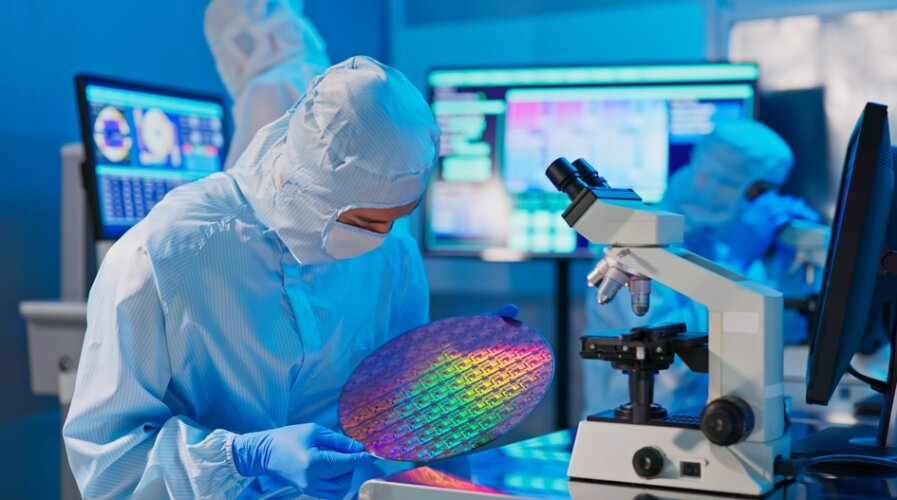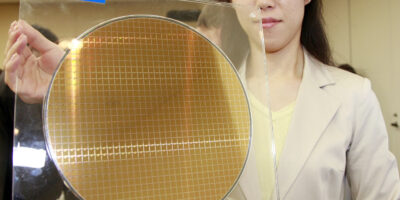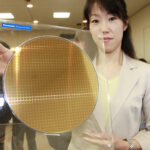
Source: Shutterstock
University in Japan is planning to hire and pay semiconductor students
The semiconductor manufacturing sector in Japan is set to get a boost. Kumamoto University in Japan announced on February 3 that it would “hire” graduate students studying semiconductors, in a bid to supply top-level personnel to its burgeoning local chip industry. According to the plan, students will be hired by the school operator and receive a salary, so they don’t have to worry about finding part-time jobs outside their studies.
For the first time, wages will be offered to Master’s course students in the semiconductor field. TSMC will expand into the Kumamoto Prefecture as governments, industry, and academia come together over a business strategy to strengthen the area’s semiconductor technology community.
It should bring a windfall for the local economy; the Japanese government is providing a subsidy of up to 476 billion yen (US$3.68 billion) to support and develop chip technologies in a move similar to many other national governments, each wary of a repeat of the recent supply chain shortages in the sector.
A TSMC production facility is being built in Kikuyo, Kumamoto prefecture. On January 12, Chief Executive Officer C. C. Wei said he is willing to go along with plans for a second chip plant in addition to the Kumamoto construction, provided demand in Japan grows.
The university plans to employ students as research assistants for 1,080 yen an hour or as junior fellows for 2,000-3,000 yen an hour. This will provide annual salaries of 1.1 million to 1.2 million yen — US$8.1k. Doctoral studies students will be eligible for an annual salary of 2 million yen. Compared to more usual student part-time employment wages, this is likely more generous – it’s certainly more vocationally-focused.
A total of more than ten students every year are expected to receive salaried posts, with a maximum of 3.5 billion yen provided over five years from fiscal 2023.
Japan’s semiconductor industry to grow
Looking to improve Japan’s international competitiveness, the Japanese education ministry released guidelines in 2020 on how to improve the treatment of young academics, although these don’t mention Master’s students in the sector specifically.
In Taiwan, the TAFS (Taiwan Fellowships & Scholarships) program is a Republic of China government initiative to promote relevant research, educational links, and enduring friendships between Taiwan and the global community. About 1,200 grants are provided annually for undergraduate and postgraduate students and researchers.
Vice President of Kumamoto University, Kiyoyuki Shimizu, said, “Many TSMC employees have Master’s degrees… treating Master’s students properly and letting them focus on learning and research will be important because companies need them.”
It was also announced that the university would establish Japan’s first undergraduate course dedicated entirely to the semiconductor sector in April 2023. The subsidy will be used to invite personnel in the semiconductor field from Interuniversity Microelectrics Center, a research center in Belgium. The Kumamoto prefecture is already home to many semiconductor-related enterprises in secondary or tertiary roles.
Because of the so-called “brain drain” in Japan’s science field, investment in professionals is crucial to maintaining a good position on the global stage and preventing personnel shortages. Although the country’s position as a technology leader has faded since its Asian Tiger role of the 1980s, it remains a center for high-end computing and electronics research, producing graduates of excellent caliber with highly-desirable work ethics.
READ MORE
- Data Strategies That Dictate Legacy Overhaul Methods for Established Banks
- Securing Data: A Guide to Navigating Australian Privacy Regulations
- Ethical Threads: Transforming Fashion with Trust and Transparency
- Top 5 Drivers Shaping IT Budgets This Financial Year
- Beyond Connectivity: How Wireless Site Surveys Enhance Tomorrow’s Business Network


